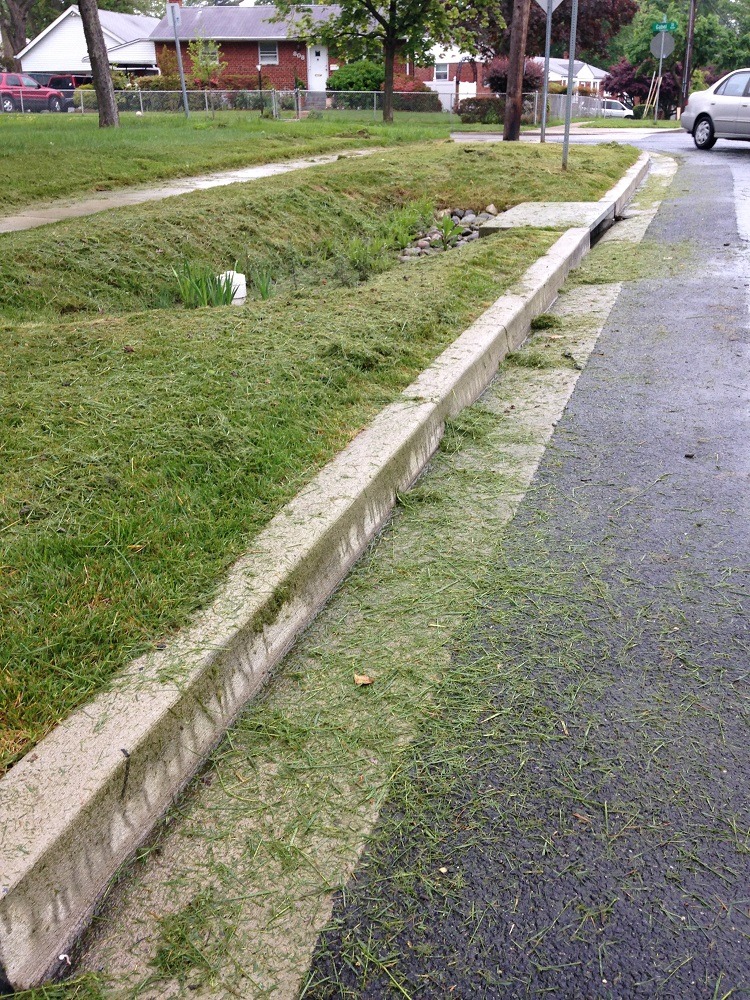| Your guide to green living in Montgomery County, MD |

Have you noticed a storm drain in front of your home or business, school, or house of worship?
Take these SIMPLE ACTIONS to make a BIG IMPACT on your local waterways and prevent flooding on the roads:

Anyone can do their part to keep our storm drains clean.
Did you know that we have over 63,000 storm drains along our public roads in Montgomery County, and thousands more on private roads or private parking lots? We can help protect the health of our streams and the Chesapeake Bay by keeping them clean! Although 63,000 public storm drains sounds like a lot of work, that’s only one storm drain per every six households in Montgomery County, so it’s not asking a lot.
Leaves, grass clippings, trash, and sediment that run into storm drains have a large impact on our waterways. Stormwater runoff contains nutrients like phosphorus and nitrogen that cause algae blooms, and heavy metals, petrochemicals, hydrocarbon, crumbling asphalt, and bacteria. These are all toxic to aquatic life and pollutants in our drinking water. Some storm drains gobble up 50-100 pounds of dry sediment, trash, and leaves per year if we don’t keep it out. Clogged drains also lead to flooding in roadways, or ice in the winter.
Do your part to clean the nearest storm drain! Simple, right?

Grass clippings should be kept out of the street and storm drains–leave them on the grass instead.
I totally agree when you said that the leaves and grass clippings should not be blown into the street, but they should just be left on the ground and used as mulch which can be repurposed as a free fertilizer. I can imagine how important it is to follow these tips in order to protect the systems that can prevent us from having floods in our community. And there should also be a scheduled storm drain cleaning which the community management or even the homeowners can hire so that the professionals will do the job for them in preparation for the season or the months that rain a lot.
Thanks for helping me understand that our waterways can also be affected when leaves, grass clippings, trash, and sediment go to the storm drains. I do not want to experience flooding in my area, many when my house is in the lower part of the neighborhood. So I hope that I can also encourage my neighbors who are in the higher areas to hire storm drain cleaning services every now and then to prevent us from being the first property to be affected if there is flood.
The details about the pollutants in stormwater runoff were alarming. The connection between what goes down the drain and its impact on aquatic life and drinking water quality is something I hadn’t considered before. It’s motivating to know that taking small steps, like properly disposing of leaves and trash, can make a big difference. Thank you for bringing attention to the crucial issue of storm drain maintenance in Montgomery County!
I appreciate the reminder that simple actions, such as keeping leaves and debris away from storm drains, can make a substantial difference in preventing flooding, ice buildup, and contamination of our water sources. It’s a collective responsibility that, when embraced by communities, can lead to significant improvements in our local ecosystems and the Chesapeake Bay’s overall health. Thank you for sharing.